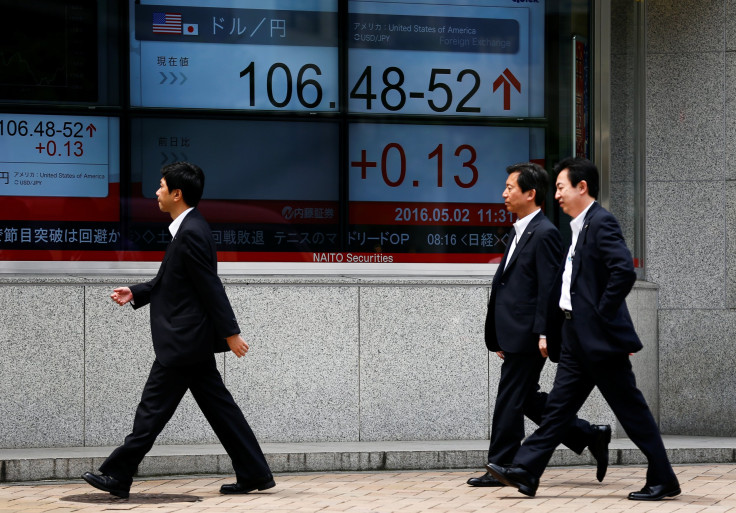Japan May Intervene In Forex Markets If Yen Appreciates Wildly, Finance Minister Taro Aso Says

Since the beginning of the year, the yen has gained over 12 percent against the dollar, and was trading at 108.03 to a dollar at 6:40 a.m. EDT Monday, levels last seen in October 2014. The surge in the strength of the yen has detrimental effects for the Japanese economy, which is heavily export-oriented, and concerns over the effects of a volatile currency on trade prompted Finance Minister Taro Aso to tell the National Diet, Japan's parliament, that the country was ready to intervene in currency markets.
“For Japan, excessive volatility in yen moves that affect Japan's trade, economic and fiscal policies — be it yen rises or yen falls — is undesirable. If such moves occur, Japan is ready to intervene in the market,” Aso said Monday.
Aso has made similar comments — though none so direct — in recent weeks, as has Bank of Japan Governor Haruhiko Kuroda, but their statements have had little or no impact on the currency. The country last intervened in currency markets in 2011, and has relied on statements, such as Aso’s and Kuroda’s, to affect currency markets indirectly.
Speaking in the parliament, Aso also disclosed that Japan’s Ministry of Finance and the U.S. Treasury Department don’t see eye to eye over the yen’s recent appreciation. While the U.S. does not think the recent rise in yen merits government intervention, Japan sees the appreciation with more worry.
Last month, the United States added Japan to a list of countries it would monitor for the government’s foreign exchange policy. Aso also said Monday that being included on the U.S. Treasury Department watch list would not affect Japan’s course of action, adding that all G-20 nations agreed on the undesirability of excessive currency fluctuations.
If the government decided to intervene in the forex market, it would have broad support from the Japanese businesses. Sadayuki Sakakibara, who heads Keidanren — Japan’s biggest business lobby — said Monday it was “natural” for Japanese authorities to act against recent yen rises that were speculative and out of line with economic fundamentals, Reuters reported, citing Kyodo News agency.
Last week, Naoyuki Shinohara, former Japanese vice minister of finance for international affairs, told Nikkei Asian Review he thought it was “very unlikely that the G-7 would share an understanding on the yen.”
© Copyright IBTimes 2025. All rights reserved.





















